Keynote Speakers
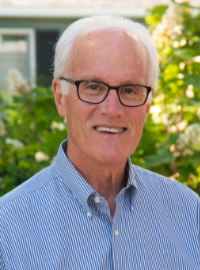 Kenneth E. Warner, PhD
Kenneth E. Warner, PhD- Kenneth E. Warner, PhD
- University of Michigan: Avedis Donabedian Distinguished University Professor Emeritus of Public Health; Professor Emeritus of Health Management & Policy; Dean Emeritus of Public Health
- Profile: sph.umich.edu
- Kenneth E. Warner is the Avedis Donabedian Distinguished University Professor Emeritus of Public Health and Dean Emeritus at the University of Michigan School of Public Health, where he was on the faculty from 1972-2017. He served as Dean from 2005-2010 and as a department chair from 1982-88 and 1992-95. An economist, Dr. Warner earned his A.B. degree from Dartmouth College and M.Phil. and Ph.D. degrees from Yale University.
- More about this presenter +
- Presented in over 300 professional publications, including 7 books, Dr. Warner’s research has focused on tobacco and health policy. Dr. Warner served as the World Bank’s representative to negotiations on the Framework Convention on Tobacco Control. He also served as the Senior Scientific Editor of the 25th anniversary Surgeon General’s report on smoking and health. During 2004-05 he was President of the Society for Research on Nicotine and Tobacco. He was a founding member of the Board of Directors of the Truth Initiative. Currently, he is a member of the FDA Tobacco Products Scientific Advisory Committee and an elected member of the Board of Trustees of Northwestern Michigan College. Dr. Warner’s honors and awards include: the Surgeon General’s Medallion, conferred by Dr. C. Everett Koop in 1989; election to membership in the National Academy of Medicine in 1996; a Luther L. Terry Award for Exemplary Leadership in Tobacco Control in 2003; the Alton Ochsner Award Relating Smoking and Disease in 2010; and the triennial Doll-Wynder Award from the Society for Research on Nicotine and Tobacco in 2017.
 Mitch Zeller, JD
Mitch Zeller, JD- Mitch Zeller, JD
- United States Food and Drug Administration: Director, Center for Tobacco Products
- As director of the Center for Tobacco Products, Mitch Zeller leads FDA's efforts to reduce disease and death from tobacco use and bring previously unavailable information about its dangers to light. Zeller is dedicated to carrying out CTP's charge to reduce the harm from all tobacco products across the entire population—with a focus on how and why people start, stop, or start using these products again.
- More about this presenter +
- Mitch Zeller, J.D., became director of the FDA's Center for Tobacco Products in March 2013. The mission of CTP—established by enactment of the 2009 Family Smoking Prevention and Tobacco Control Act—is “to make tobacco-related death and disease part of America's past, not America's future, and, by doing so, ensure a healthier life for every American family.” “Today, FDA has an unprecedented opportunity to use the tools in the Tobacco Control Act,” Zeller said. “Product regulation is a powerful component of a comprehensive strategy to reduce the death and disease from tobacco use. We will marshal the science to support new policies to help combat the leading cause of preventable disease and death in the United States,” he added. Zeller, a graduate of Dartmouth College and the American University Washington College of Law, has been working on FDA issues for more than 30 years. He began his career as a public interest attorney in 1982 at the Center for Science in the Public Interest (CSPI). In 1988, Zeller left CSPI to become counsel to the Human Resources and Intergovernmental Relations Subcommittee of the House of Representatives Government Operations Committee where he conducted oversight of enforcement of federal health and safety laws. In 1993, Zeller joined the staff of then-FDA Commissioner Dr. David Kessler, M.D. What began as a two-week assignment by Kessler in 1994 to examine the practices of the tobacco industry led to his serving as associate commissioner and director of FDA's first Office of Tobacco Programs. Instrumental in crafting the agency's 1996 tobacco regulations, Zeller also represented FDA before Congress, federal and state agencies. Zeller also served as an official U.S. delegate to the World Health Organization (WHO) Working Group for the Framework Convention on Tobacco Control. In 2000, Zeller left FDA to continue his work for tobacco control as executive vice president of the American Legacy Foundation. His responsibilities there included marketing, communications, strategic partnerships, and creating the foundation's first Office of Policy and Government Relations. In 2002, Zeller joined Pinney Associates where, as senior vice president, he provided strategic planning and communications advice on domestic and global public health policy issues involving the treatment of tobacco dependence and the regulation of tobacco products and pharmaceuticals.
Featured Speakers
 Warren Bickel, PhD
Warren Bickel, PhD- Warren Bickel, PhD
- Virginia Tech: Carilion Inaugural Professor of Behavioral Health Research; Director, Addiction Recovery Research Center; Director, Center for Transformative Research on Health Behaviors, Fralin Biomedical Research Institute at VTC
- about this presenter +
- Dr. Bickel is an accomplished scholar and researcher in addiction and health behavior research. He received his Ph.D. in developmental and child psychology from the University of Kansas and completed post-doctoral training at Johns Hopkins University School of Medicine. He has led research programs at the Albert Einstein College of Medicine, the University of Vermont, and the University of Arkansas for Medical Sciences. Dr. Bickel currently leads NIH-funded research programs at the Fralin Biomedical Research Institute at VTC. He is the recipient of numerous awards and honors including the 2016 Nathan B. Eddy Award for Outstanding Research. Dr. Bickel has co-edited five books and published over 470 papers and chapters. His work is frequently cited and receives national and international recognition.
 Kenneth Cummings, PhD, MPH
Kenneth Cummings, PhD, MPH- Kenneth Cummings, PhD, MPH
- University of South Carolina: Professor
- Profile: education.musc.edu
- about this presenter +
- Dr. Cummings has a Master’s degree and PhD. in Health Education and Health Behavior from the School of Public Health at the University of Michigan. He is currently a Professor in the Department of Psychiatry & Behavioral Sciences and member of the Hollings Cancer Center’s Cancer Prevention and Control Program where he co-leads the tobacco control research program. He joined the MUSC faculty in October 2011 and has been involved in establishing a tobacco dependence treatment service for patients seen in the University hospital and outpatient clinics. Before coming to MUSC, Dr. Cummings worked at the Roswell Park Cancer Institute (RPCI) in Buffalo, New York, where he was a senior research scientist and Chairman of the Department of Health Behavior. Dr. Cummings training and research interests are in the study of health related behaviors, especially tobacco use prevention and cessation. His research is primarily population based with a focus on smoking cessation, consumer risk perceptions, the impact of cigarette design on smoking behaviors, and the evaluation of public policies on tobacco use behaviors. Recognized internationally for his work in tobacco epidemiology and smoking cessation, Dr. Cummings has guided global public policy and regulations in the marketing and distribution of nicotine products. This work has involved designing studies to understand factors involved in predicting uptake and cessation of tobacco use and the testing of interventions to alter tobacco use behaviors at both the individual and population level. In 2002, Dr. Cummings established the International Tobacco Research Policy Evaluation Project (ITC Project) to evaluate the behavioral impacts of national level tobacco control policies implemented as part of the WHO Framework Convention on Tobacco Control (FCTC). This international project began in 2002 and involves over 100 scientific colleagues from more than 20 countries and includes a wide range of research projects ranging from those focused on biological factors that influence tobacco use to the impact of health warnings and public education campaigns on representative populations of smokers. As part of his work with the ITC Project he has served as the PI on three large multi-institutional NIH grants (P50 CA111236: 2004-2009, P01 CA138389: 2009-2016, P01 CA200512: 2016-2021). Data from the ITC Project has become an important source of the evidence base used by governments and public health advocates to support tobacco control policy initiatives around the world. Over his 35-year career he has directed more than 70 grants and contracts and has published over 430 scientific papers including landmark reports for the Office of the Surgeon General, the National Cancer Institute, the International Agency for Research on Cancer, and the Institute of Medicine. In the late 1990s, Cummings contributed to digitizing and publishing online previously secret internal tobacco industry documents which described how manufacturers directed their marketing to attract youthful replacement smokers and designed cigarettes in ways that make it hard for smokers to quit once they get addicted to nicotine. Because of his vast expertise in smoking behavior and knowledge of industry documents he has served as an expert witness in legal proceedings against cigarette manufacturers, including proceedings that resulted in the Master Settlement Agreement in 1998. In 2009, Dr. Cummings was awarded the prestigious Luther Terry award given out by the American Cancer Society in recognition of his research contributions to the field of public health.
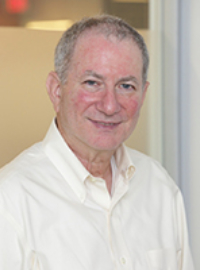 Rocky Feuer, MS, PhD
Rocky Feuer, MS, PhD- Rocky Feuer, MS, PhD
- National Institutes of Health: Project Scientist, CISNET; Chief, Statistical Research & Applications Branch, NCI
- Profile: surveillance.cancer.gov
- about this presenter +
- Eric J. (Rocky) Feuer is a Branch Chief in the Surveillance Research Program (SRP) within the Division of Cancer Control and Population Sciences (DCCPS) at the National Cancer Institute. Dr. Feuer received his MS and PhD in biostatistics from the University of North Carolina at Chapel Hill. Prior to joining SRP, Dr. Feuer worked as the statistician for the cancer center at Mt. Sinai School of Medicine. Since 1999 he has been chief of the Statistical Research and Applications Branch. Dr. Feuer is also the NCI Project Scientist for the Cancer Intervention and Surveillance Modeling Network (CISNET), a collaborative group of investigators who use simulation modeling to guide public health research and priorities. He is the author of over 175 papers in the areas of cancer control modeling, statistical methods for the analysis, interpretation, and presentation of population-based cancer statistics; development of new cancer progress measures; and survival analysis. He is co-developer for the statistical methods and associated software for Joinpoint, DevCan, CanSurv, and CI*Rank. Dr. Feuer is a fellow of the American Statistical Association and was president of the Eastern North American Region (ENAR) of the International Biometric Society in 2008. He has won numerous NIH merit awards, and also been the recipient of two prestigious NIH Directors awards (for recognition in advancing statistical methods to interpret national cancer statistics, and, for leadership in coordinating the efforts of the CISNET consortium).
 Thuy Le, PhD
Thuy Le, PhD- Thuy Le, PhD
- University of Michigan: Postdoctoral Fellow
- about this presenter +
- Dr. Thuy Le received her diploma degree in Applied Mathematics from Belarusian State University, Belarus, in 2012 and her Ph.D. degree in Applied Mathematics from the University of Padua, Italy, in 2016. She is currently a postdoc at the University of Michigan School of Public Health. Her current research interests include control theory, optimization and mathematical modeling.
 David Levy, PhD
David Levy, PhD- David Levy, PhD
- Georgetown University: Professor, Georgetown University Medical Center; CAsToR Principal Investigator
- Profile: georgetown.edu
- about this presenter +
- Dr. David Levy is PI for CAsToR at Georgetown University and co-Lead of Projects 1 - 3, and the Research Assessment and Input Development Core. He received his PhD in Economics from UCLA (USA), and is currently a Professor of Oncology at Georgetown University. He has published over 250 articles, in renowned journals such as the American Economic Review, BMJ, AJPH, JAMA, The Lancet, Tobacco Control, and PLOS Medicine. He has been principal investigator of grants from the CDC, WHO, the National Cancer Institute, and Bloomberg/Gates Foundation. Dr. Levy currently oversees the design and development of the SimSmoke tobacco policy simulation model, for which he has developed models for over 40 countries covering 85% of the world’s population, and has recently developed models of smokeless tobacco and e-cigarette use. In addition to being a principal investigator on the TCORS grant, he is currently a principal investor on a National Cancer Institute grant with the InternationalTobaccoControl Policy Evaluation Project (theITCProject) in which he has developed models of e-cigarette use for Canada, England and France; and is a principal investigator on the National Cancer Institute CISNET Lung Group. He has recently published articles providing a public health framework for evaluating e-cigarettes and showing the potential benefits of e-cigarettes, as well as papers on the cigarette and e-cigarette markets.
 Douglas Luke, PhD
Douglas Luke, PhD- Douglas Luke, PhD
- Brown School at Washington University in St. Louis: Irving Louis Horowitz Professor in Social Policy
- about this presenter +
- Douglas Luke is a leading researcher in the areas of public health policy, systems science and tobacco control. Luke directs work focused primarily on the evaluation, dissemination and implementation of evidence-based public health policies.Over the past decade, Luke has used systems science methods, especially social network analysis and agent-based modeling, to address important public health problems. He published the first review papers on network analysis in public health in 2007, and on systems science methods in public health in 2012. He has written books on multilevel modeling and network analysis. Under Luke’s leadership, the Center for Public Health Systems Science has used network analysis to study diffusion of scientific innovations, to model the formation of organizational collaborations, and to study the relationship of mentoring to future scientific collaboration.In addition to his appointment at the Brown School, Luke is a member of the Institute of Clinical and Translational Science and a founding member of the Washington University Network of Dissemination and Implementation Researchers. In addition, he served on an Institute of Medicine panel that produced a national report on the use of agent-based modeling for tobacco regulatory science.
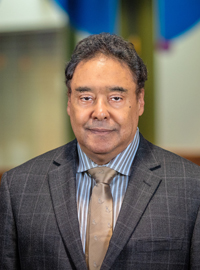 David Mendez, PhD
David Mendez, PhD- David Mendez, PhD
- University of Michigan: Associate Professor
- about this presenter +
- Dr. David Mendez is an Associate Professor in the Department of Health Management and Policy at the University of Michigan. His research focuses on modeling trends of cigarette smoking cessation or switching to e-cigarettes. Dr. Mendez’s research also investigates the financial implications of these trends, with specific focus on tobacco control in the United States.
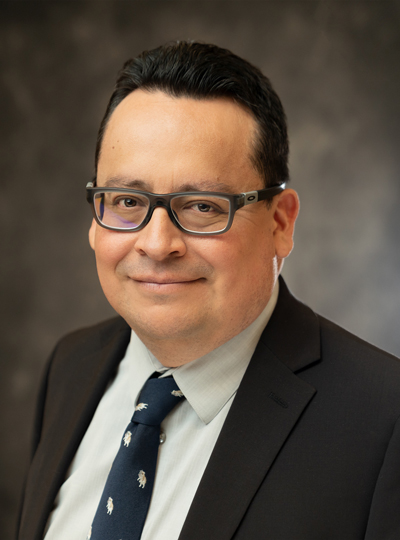 Rafael Meza, PhD
Rafael Meza, PhD- Rafael Meza, PhD
- University of Michigan: Professor, Epidemiology; Professor of Global Public Health; Co-Leader, Cancer Epidemiology and Prevention Program, UM Rogel Cancer Center; CAsToR Principal Investigator
- Profile: sph.umich.edu
- about this presenter +
- Dr. Meza is professor in the Department of Epidemiology at the University of Michigan. He received his BSc in applied mathematics from the Instituto Tecnologico Autonomo de Mexico (ITAM), and his PhD in applied mathematics from the University of Washington. After receiving his PhD, Dr. Meza completed a two-year postdoctoral fellowship at the Fred Hutchinson Cancer Research Center - and a three-year fellowship at the University of British Columbia Centre for Disease Control. Dr. Meza's research interests lie at the interface of epidemiology, biostatistics and biomathematics. In particular, he is interested in cancer risk assessment and the analysis of cancer epidemiology data using mechanistic models of carcinogenesis. He is also interested in the mathematical modeling of chronic and infectious disease dynamics and its applications in disease prevention public health policy design. Dr. Meza is Coordinating Principal Investigator of the Cancer Intervention and Surveillance Modeling Network (CISNET) lung group, core member and co-leader of the Cancer Epidemiology and Prevention Program at the University of Michigan Rogel Cancer Center. He is also Honorary Professor at the Mexico National Institute of Public Health (INSP), and a member of Mexico’s National System of Investigators (SNI Level II). Currently, Dr. Meza is developing models to evaluate the impact of screening and smoking cessation on lung cancer risk. Additional projects include the development of methodologies to investigate the effects of infectious disease dynamics on the risk of cancers with infectious disease etiology, particularly HPV-related cancers, assessing the acceptability of HPV screening in indigenous and minority populations in Latin America, and modeling the impact of policies on tobacco use.
 Raymond Niaura, PhD
Raymond Niaura, PhD- Raymond Niaura, PhD
- New York University: Interim Chair of the Department of Epidemiology; Professor of Social and Behavioral Sciences
- about this presenter +
- Dr. Raymond Niaura is a psychologist and an expert on tobacco dependence and treatment, as well as substance use and addiction to alcohol. Dr. Niaura researches the biobehavioral substrates of tobacco dependence, including factors that influence adolescent and early adult tobacco use trajectories. He also evaluates behavioral and pharmacological treatments for tobacco cessation, with a particular interest in cessation in disadvantaged population to address public health disparities in tobacco-related burdens of illness and disability. For eight year, Dr. Niaura was the Director of Science and Training at the Schroeder Institute (SI) for Tobacco Research and Policy Studies at the Truth Initiative, where he also supervised the pre- and post-doctoral training programs. Dr. Niaura has previously taught and conducted research at Brown University, Johns Hopkins Bloomberg School of Public Health, the Georgetown Medical Center, and the School of Public Health at University of Maryland. He was also a former President of the Society for Research on Nicotine and Tobacco and is a Deputy Editor of the Nicotine and Tobacco Research. With grants from the National Institutes of Health, numerous foundations, and private industry, Dr. Niaura has published over 400 peer-reviewed articles, commentaries, and book chapters, including the book The Tobacco Dependence Treatment Handbook: A Guide to Best Practices.
 Esther Salazar, PhD
Esther Salazar, PhD- Esther Salazar, PhD
- United States Food and Drug Administration: Lead Mathematical Statistician, Center for Tobacco Products, Office of Science
- about this presenter +
- Dr. Esther Salazar is a Lead Mathematical Statistician in the Center for Tobacco Products (CTP) at the U.S. Food and Drug Administration (FDA). Her areas of expertise are health effects of tobacco product use, population modeling, survey data analysis, text mining, machine learning techniques for big data, and Bayesian analysis. At the FDA, Dr. Salazar has been actively collaborating with modeling and simulation research activities to investigate the morbidity and mortality effects of tobacco use in the U.S. population. Before joining the FDA in 2015, Dr. Salazar was a Research Assistant Professor in the Electrical and Computer Engineering Department at Duke University. She also has training as Postdoctoral Fellow in the Department of Statistical Science at Duke University and the Statistical and Applied Mathematical Sciences Institute (SAMSI) in North Carolina.
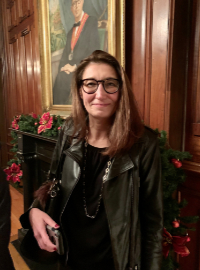 Aylin Sertkaya, PhD
Aylin Sertkaya, PhD- Aylin Sertkaya, PhD
- Eastern Research Group, Inc.: Senior Economist and Vice President
- about this presenter +
- Dr. Aylin Sertkaya, an ERG senior economist and vice president, designs and conducts economic analyses in support of a wide variety of public policy initiatives. Her work includes examining the costs and benefits of federal programs, particularly those that affect public health and safety, and requires close collaboration with scientists, policymakers, independent experts, and other stakeholders. She has been the director of ERG’s economics team for over 10 years. Aylin received a Recognition Award from the Food and Drug Administration for her work on effective quality systems and risk management approaches as part of FDA’s cGMPs (current Good Manufacturing Practices) in the 21st Century initiative. She has held several leadership positions in the Society for Risk Analysis, including president of SRA’s New England chapter, chair of its Economics and Benefit Analysis Specialty Group, and chair of numerous sessions at SRA meetings. She received the SRA Recognition Award for the workshop on expert elicitation methods that she has co-organized for SRA annual meetings since 2008. Aylin holds a Ph.D. in economics and a B.A. in physics and economics, with a minor in mathematics.
 Iris Shao, MPH
Iris Shao, MPH- Iris Shao, MPH
- Emory University: Doctoral Student
- about this presenter +
- Iris Yuefan Shao is currently a doctoral candidate at Emory University Rollins School of Public Health Department of Epidemiology. Her main research focuses on evaluating the role of social network structure in shaping population-level tobacco use behavioral patterns and targeting intervention effectiveness. Methodologically, she is interested in applying a systems modeling approach to evaluate the effectiveness of tobacco control programs for health disparity reduction.
 Jody Sindelar, PhD
Jody Sindelar, PhD- Jody Sindelar, PhD
- Yale University: Professor of Public Health (Health Policy), Professor of Economics, and Professor in the Institution for Social and Policy Studies; Research Associate, NBER
- about this presenter +
- Professor Jody Sindelar is a professor of public health, health economist, and public policy expert in the Department of Health Policy and Management at Yale School of Public Health (YSPH), as well as with Yale’s Department of Economics. In addition, she is a research associate at the National Bureau of Economic Research (NBER), research fellow at the IZA Institute of Labor Economics, and faculty fellow at Yale’s Institution for Social and Policy Studies (ISPS). She is also a founding member and past president of the American Society of Health Economists (ASHEcon).Professor Sindelar’s expertise is on the economics of substance abuse, including addictive substances of tobacco/vaping, alcohol, and illicit drugs. She has published on the impacts of substance abuse on productivity, educational attainment, gender differences, and other policy issues; and in various journals of economics, policy, addiction, health and medicine. Also, she has served on numerous editorial, review, and advisory boards and committees, and has presented her research at seminars and conferences both nationally and abroad. Professor Sindelar has given keynote addressesto conferences in the United States, Australia, Germany, Italy, and Sweden. She has also been a visiting professor at several universities and institutes, including Boston University in Boston, MA; the Rand Corporation in Santa Monica, CA and Washington, DC; Centro de Investigación y Docencia Económicas (CIDE) in Mexico City, Mexico; and Shanghai Jiao Tong University Medical School in Shanghai, China. In addition, she has had sabbaticals at the Institut d'études Politiques de Paris (Paris Institute of Political Studies) in Paris, France; Stanford University in Stanford, CA; and the University of Pennsylvania.Professor Sindelar has been a principal investigator or collaborator on numerous research projects funded by various organizations, including the Agency for Healthcare Research and Quality (AHRQ); Centers for Medicare and Medicaid Services (CMS); Connecticut Department of Social Services (DSS); Food and Drug Administration (FDA); National Institute of Alcohol Abuse and Alcoholism (NIAAA); National Institute of Mental Health (NIMH); National Institute on Aging (NIA); National Institute on Drug Abuse (NIDA); Robert Wood Johnson Foundation (RWJF); Department of Veterans Affairs (VA); Yale Center for Clinical Investigation (YCCI); and the Federal Drug Administration.
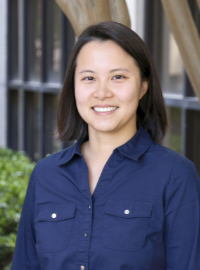 Ruoyan Sun, PhD
Ruoyan Sun, PhD- Ruoyan Sun, PhD
- University of Alabama: Assistant Professor, Department of Health Care Organization and Policy, School of Public Health
- about this presenter +
- Ruoyan Sun is an Assistant Professor in the Department of Health Care Organization and Policy at UAB School ofPublic Health. Trained in health economics and operations research, she applies a variety of quantitative methods to evaluate tobacco control policies. Her research focus on three main topics. First one is policy simulation, specifically modeling and simulating changes in smoking behaviors (initiation and cessation) via agent based modeling. The second one utilizes optimal control methods with mathematical models to assess optimal mix of interventions to reach tobacco control goals. Using survey data, she also examines risk factors for adolescent vaping in the US. Recently, Dr. Sun started a new line of research, mining social media data on e-cigarettes for content and sentiment analysis.Dr. Sun received her undergraduate degree from College of William and Mary, a master’s degree from Johns Hopkins University and her Ph.D. from the University of Michigan.
 Jamie Tam, PhD
Jamie Tam, PhD- Jamie Tam, PhD
- Yale University: Assistant Professor
- about this presenter +
- Jamie Tam is an Assistant Professor in the Department of Health Policy and Management at the Yale School of Public Health. Dr. Tam conducts research on the effects of tobacco regulations, with a special focus on the use of systems science methods to understand tobacco use disparities, including populations with mental health conditions. Her recent work examines the implications of the relationship between smoking and depression for mortality outcomes, and uses modeling methods to evaluate interventions that address their co-occurrence. Dr. Tam has developed computational models that simulate the effects of policies on smoking and population health in the United States, and launched a web-based interface that allows users to explore the potential health effects of different tobacco control policies. Dr. Tam was previously a NAM Tobacco Regulatory Science Fellow at the FDA Center for Tobacco Products and is broadly interested in domestic and global tobacco control issues; Her other projects have considered the effects of demographic changes on smoking prevalence, longitudinal transitions between tobacco products, and youth exposure to nicotine through electronic cigarettes.
Featured Panelists
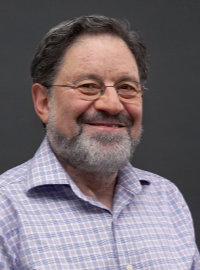 David B. Abrams, PhD
David B. Abrams, PhD- David B. Abrams, PhD
- New York University: Professor of Social and Behavioral Sciences School of Global Public Health
- about this presenter +
- David Abrams holds a B.Sc. (Hons.) in Psychology and Computer Science from the University of the Witwatersrand, South Africa and a Ph.D. in Clinical Health Psychology from Rutgers University. He is a clinical psychologist specializing in nicotine use, addictions, and chronic disease prevention. Prior to joining NYU, from 1978-2004 Abrams became Professor of Psychiatry and Community Health and founding director, Centers for Behavioral and Preventive Medicine, Warren Alpern Medical School of Brown University.He then directed the Office of Behavioral and Social Sciences Research (OBSSR) at the National Institutes of Health (NIH) and in 2008 was the founding director of The Schroeder Institute of Tobacco Research and Policy Studies at Truth Initiative/American Legacy Foundation and Professor, The Johns Hopkins Bloomberg School of Public Health.Professor Abrams has published over 300 scholarly articles and been a Principal Investigator on numerous NIH research grants. He authored of The Tobacco Dependence Treatment Handbook: A Guide to Best Practices, a winner of a book of the year award. His achievements include: The Joseph Cullen Memorial Award, American Society for Preventive Oncology for lifetime contributions to tobacco control; Research Laureate Award, American Academy of Health Behavior; Distinguished Alumni Award, Rutgers University; Board of Scientific Advisors, NIH National Cancer Institute; President, Society for Behavioral Medicine and a recipient of their Distinguished Scientist, Distinguished Mentor and Service Awards. Throughout his career, Dr Abrams has specialized in health promotion, addictive behaviour, and tobacco and nicotine use behavior. His present focus is on comprehensive systems frameworks for aligning complex vectors to accelerate the prevention of about a billion premature deaths in the 21st century.
 Benjamin Apelberg, PhD, MHS
Benjamin Apelberg, PhD, MHS- Benjamin Apelberg, PhD, MHS
- United States Food and Drug Administration: Deputy Director, Office of Science, Center for Tobacco Products
 Dorothy Hatsukami, PhD
Dorothy Hatsukami, PhD- Dorothy Hatsukami, PhD
- University of Minnesota: Professor
- Profile: psychiatry.umn.edu
- about this presenter +
- Dorothy K. Hatsukami, Ph.D. is the Professor of Psychiatry and Behavioral Sciences, Forster Family Chair in Cancer Prevention and Associate Director of Cancer Prevention and Control of the Masonic Cancer Center at the University of Minnesota. Her areas of expertise include nicotine addiction and its treatment and tobacco regulatory science, evaluating the toxicity, appeal and addictiveness of various tobacco products. She has about 500 peer reviewed publications. She has served on numerous scientific advisory boards or councils for the U.S. government including NIDA, SAMSHA, ONDCP, Interagency Committee on Smoking and Health, and the FDA Tobacco Product Scientific Advisory Committee s. She is currently a member of the World Health Organization Study Group on Tobacco Product Regulation. She was a past president of the Society of Reteach on Nicotine and Tobacco and the College on Problems of Drug Dependence.